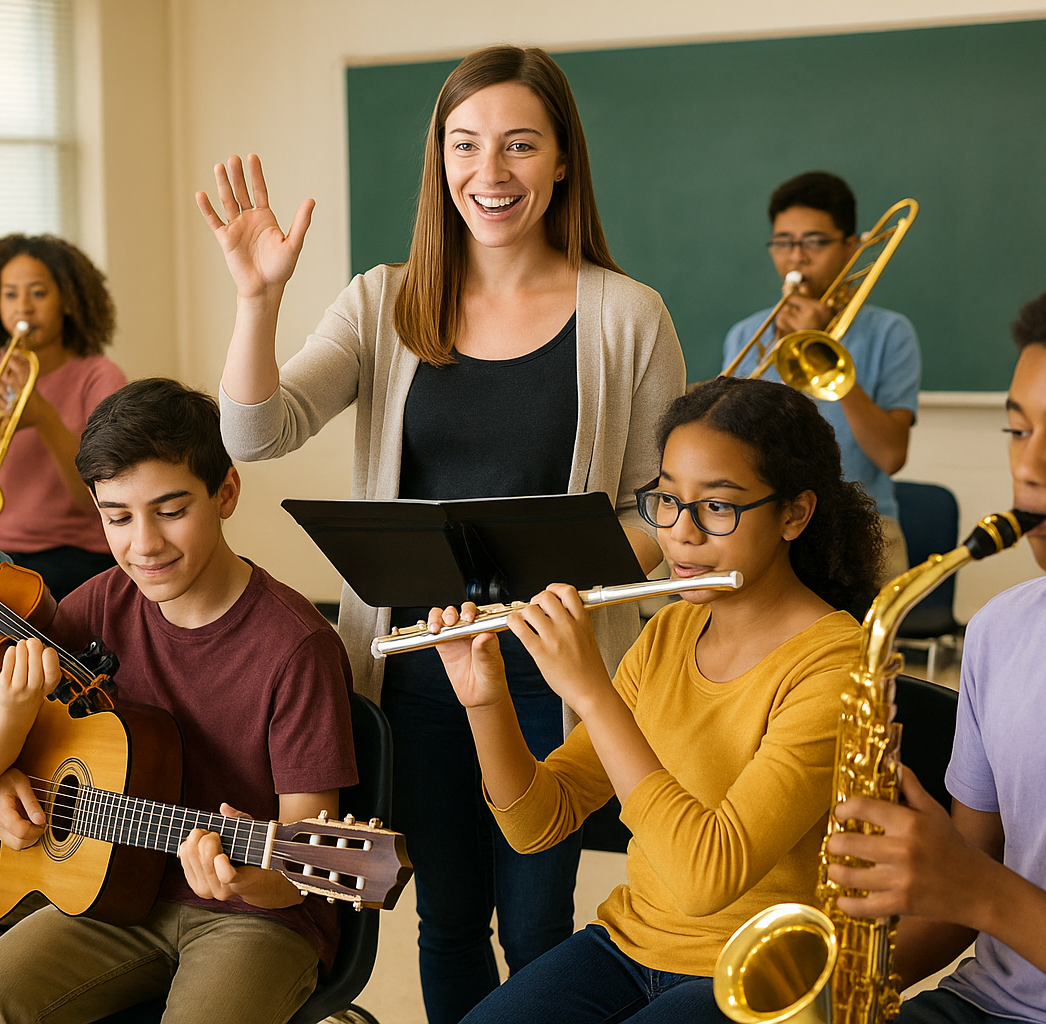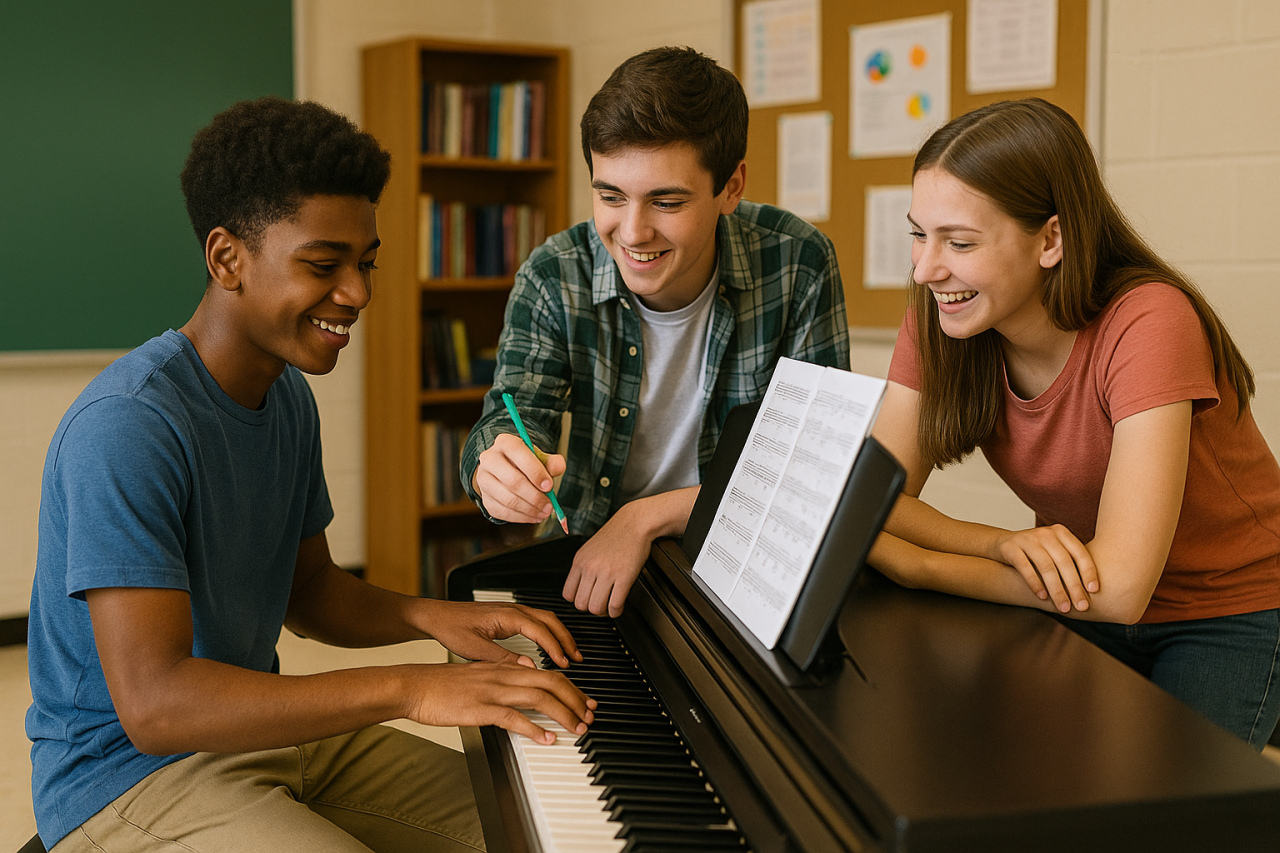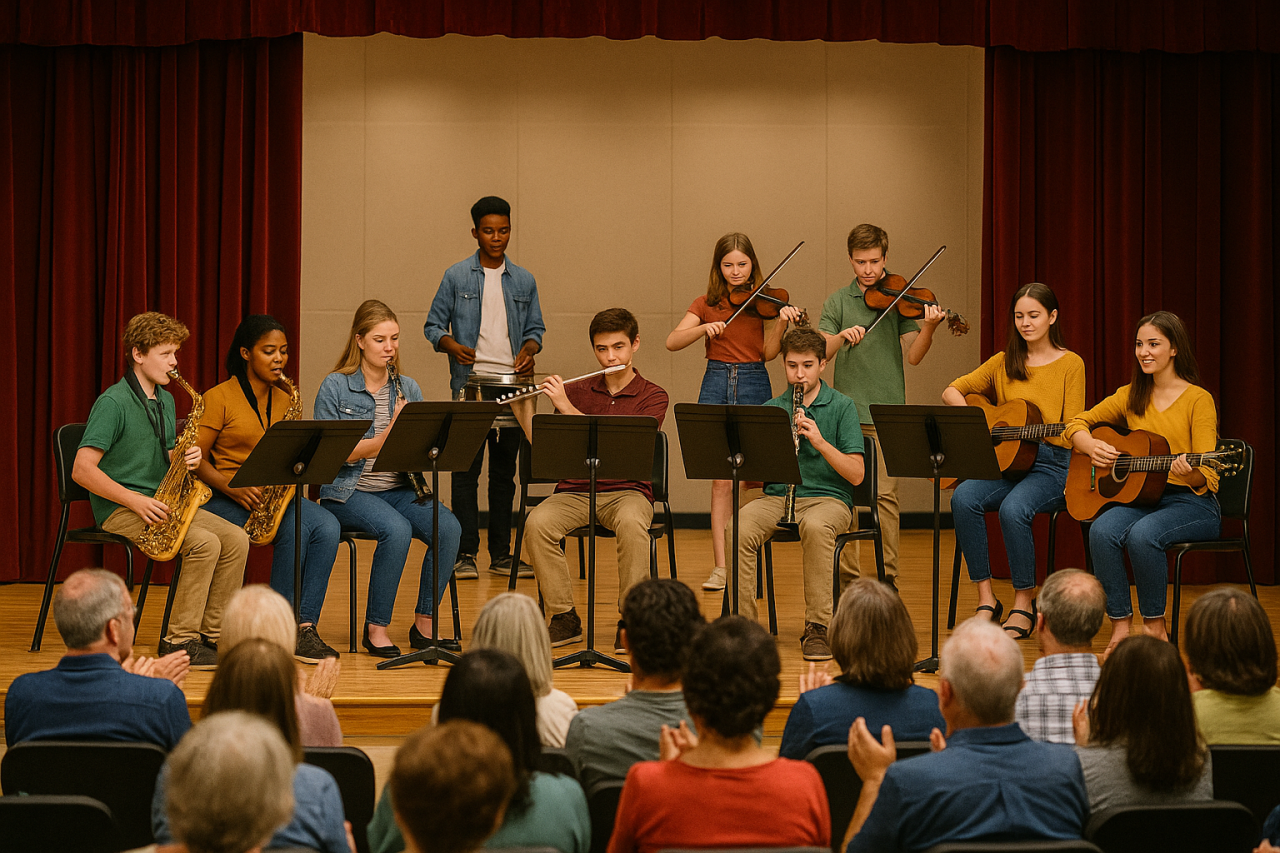Why music is essential in secondary schools!

This article offers some reasons why I believe music is one of the most important subjects that students should learn at secondary school.

Introduction
Why should music be taught in schools? This should be the only reason: it’s a fascinating subject in its own right. It really shouldn’t require justification beyond this reason to be worthy of study. Until recently, it was recognised as an essential part of education, and held a place of honour in education since at least the time of the Ancient Greeks.
Before leaving primary school, most people master basic mathematics and the literacy skills they will need for the rest of their lives. Yet for some reason we don’t question why students learn things like algebra in secondary school mathematics, or elements of the periodic table in chemistry, when most students will never use any of this knowledge directly again when they leave secondary school. But of course, we understand that the skills they’re being taught in these topics are more valuable than the actual information in the topics themselves (i.e. they’re being taught how to think) – so why doesn’t the same logic apply to music?
Benefits of Music
In fact, there are many skills that music offers that other subjects simply don’t provide, or at least in much smaller amounts. Here are just some of the skills music students acquire, which are completely overlooked by most parents, other teachers and even students themselves. Music teaches students:
- how to cope with pressure (try delivering a solo performance in front of many hundreds of people: this can be nerve-racking, even for an adult!)
- how to master time management (when to practice or study and for how long, before a performance or when they're commissioned to compose a piece of music for a time-sensitive project)
- how to work to an important immovable deadline (you have only one opportunity to be ready and ‘get it right’ on the night of a performance)
- how to work well with others (in ensemble groups, large orchestras or rock and pop bands) – and having fun doing this!!

- how to develop and master leadership skills (for example, like a lead singer or lead guitarist in a group / organise rehearsals with others / take creative decisions on behalf of others / organise a piece of music based on the abilities of others - the list here could be endless)
- how to develop and master body control (whether it's breathing, finger movement and dexterity, it takes exceptional precision and discipline to successfully perform music)
- how to develop and master their patience (it takes a long time to learn some advanced pieces of music – usually hours of daily practice)
- how to develop and master their self-discipline (it takes effort and self-reliance to learn music, especially when learning a new piece on your own)
- how to develop and master creativity skills (probably the most obvious skill acquired on this list)
- how to develop and master their memorisation skills (think of the how many hundreds of tiny bits of complex and detailed information that could be contained in a single advanced piece of music, which needs to be completely memorised and delivered in a specific way during a performance - and then multiply this many times for all the music a musician can learn over years of training and practice!)
- how to develop and master their public speaking, communication and presentation skills (not just between themselves and an audience, but between other musicians in the group, and to organise rehearsals and advertise their performances to the public)
- how to develop and master respect of different styles of music and the abilities, backgrounds and cultures of people to bring them together in a common goal!

There is also a growing body of scholarship that is dedicated to the study of the health benefits of learning music: from motor skills and memorisation ability in early childhood development; through the benefits music has for children with special education needs like Autism; to relieving stress levels in adults, and providing an increased defence against Alzheimer's disease and dementia in older age through more social activity and keeping our minds active. The number of health benefits that could be mentioned are simply too numerous to include here, and are beyond the scope of this blog.
Other skills outlined in an article by Gareth Malone in The iPaper on 15 August 2025:
- Music helps students grow and develops confidence by helping them become connected, creative adults
- Music helps disengaged students show up by changing the atmosphere in a school (attendance records and behaviour reports prove this)
- Music helps students better focus during lessons and learn how to express themselves in a positive way (sometimes preventing serious behavioural issues and other anti-social problems that can occur in their development) with group work and mastering attention to detail
- Music can be an excellent skill and creative outlet for those students who’ve been told they’re ‘not academic’
- Music nurtures a heightened sense of pride and accomplishment (no other subject can come close to this, especially if the student is recognised by a professional music body for their achievements in graded examinations, and family and friends at school concerts!)
- Music requires precision, dedicated practice and resilience
- Music teaches students how to listen, how to work in harmony, and how to bounce back from failure!
UNLIKE OTHER SUBJECTS IN SCHOOLS, ALL OF THE ABOVE ARE HYPER-EMPHASISED IN MUSIC AND DEVELOP SKILLS THAT CAN STAY WITH STUDENTS FOR LIFE!
If there are other skills you can think of that are missing from this list, please contact us and it the blog will be updated. We welcome other ideas and feedback!
Categories: : Teaching Music
 Declan Plummer
Declan Plummer 
